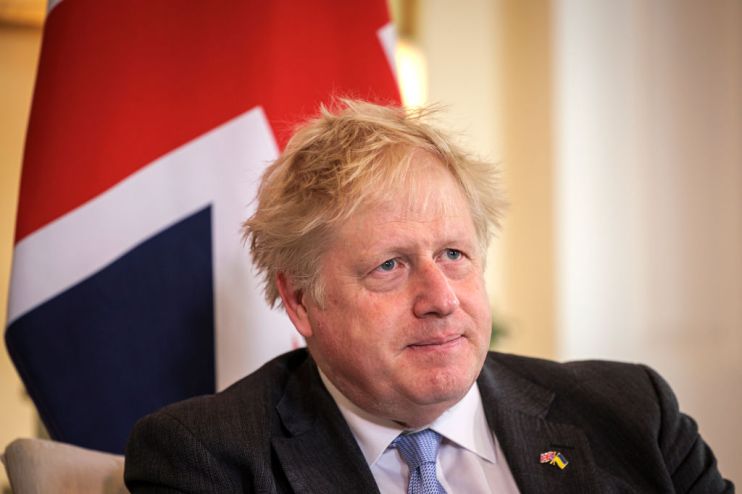The Conservative Party under Johnson has given up its devotion to freedom

It was country music legend Toby Keith who observed that “Freedom don’t come free”. Nevertheless, when the Conservative Party adopted the Manchester liberalism of Margaret Thatcher nearly 50 years ago, it was willing to pay the price. Freedom, in all its forms, became a touchstone of the Conservative brand, pursued not only for its beneficial effects but as a virtue in itself.
Thatcher was not original: she owed her philosophy to Keith Joseph and Enoch Powell, Milton Friedman and Friedrich von Hayek. She was, however, effective and sincere. And this is relevant to any discussion of the ideological condition of today’s Conservative Party.
Boris Johnson is, in many ways, the first Conservative leader since the 1970s not to define himself in comparison with Thatcher. He has his own powerful brand, but it is not primarily an ideological one. To be sure, he espouses a love of liberty in an old-fashioned, roast-beef-and-ale, Merrie England way. One can imagine him railing against the fussiness of sumptuary laws, or the buzzkills of the Puritan Commonwealth. But like almost everything the prime minister does, it is merely an instinct, a reflex.
It is fair to ask, therefore, where the Conservative Party stands on freedom. Its members and those who vote for it tend towards lower taxes and less regulation.
Significantly, these tendencies have been part of the identity built up by the foreign secretary, Liz Truss, as she positions herself for greater glory. The chancellor, Rishi Sunak, has also had to avow his preference for a lower tax burden to reassure the party faithful that he is truly “one of us”.
The evidence is not compelling. Indeed, for anyone who has liberal, let alone libertarian, instincts, the cause of freedom is one which seems in need of succour. From economic through industrial to social policy, the government acts in ways which simply are not consistent with the party’s legacy; yet there is no attempt to redefine what Conservatism is for. If, to quote Rousseau, man is born free but everywhere is in chains, the current government is not reliably helping to break those bonds.
The current tax burden is at its highest since the impoverished years of the post-War Attlee government. The state takes almost exactly a third of GDP, and that is predicted to rise to 36 per cent by the middle of the decade. That may be modest compared to the dirigiste economies of the EU, but it is a little higher than Canada or New Zealand, and positively bloated compared to the US or Ireland. Of course the massive spending of the pandemic has left a long trail, but it is not clear that the government prioritises the issue of minimising the burden.
There are worryingly illiberal signs in Whitehall in other areas too. The government had been planning to introduce regulations to ban volume promotions on food deemed unhealthy (high in fat, salt and/or sugar). The suggestion that it was rowing back caused celebrity scold Jamie Oliver to lead a protest of self-infantilising teenagers at the gates of Downing Street. Yet many argue that it is no place of government to dictate a person’s diet by effective economic coercion. This is, almost literally, the nanny state in operation.
One could point to other encroachments on liberty. The Online Safety Bill creates the idea of content which is ‘legal but harmful’, and which internet platforms have a duty to address, and has unhelpfully vague definitions of “journalistic content”.
The Police, Crime, Sentencing and Courts Act 2022 has tightened restrictions on public protests and created the new offence of “intentionally or recklessly causing public nuisance”. And it has been revealed that the Schools Bill currently before the House of Lords could allow the wholesale restoration of local authorities over schools which chose the freedom of academy status.
To be blunt, the government’s intentions do not look good. It is hard to assert with confidence that this is a prime minister who feels the urge of liberty in his bones. Boris Johnson is not naturally a man alongside whom one would choose to fight on a barricade, and his reliability in this fight is suspect.
We are told that the government is undergoing another ‘reset’. It would be heartening indeed to see some explicit commitment to freedom, choice and personal autonomy. We need a government which trusts its citizens, which believes that they are best placed to decide how to spend their money, and which supports an economy which will function most profitably with minimal intervention. That would be a Conservative message worth hearing.